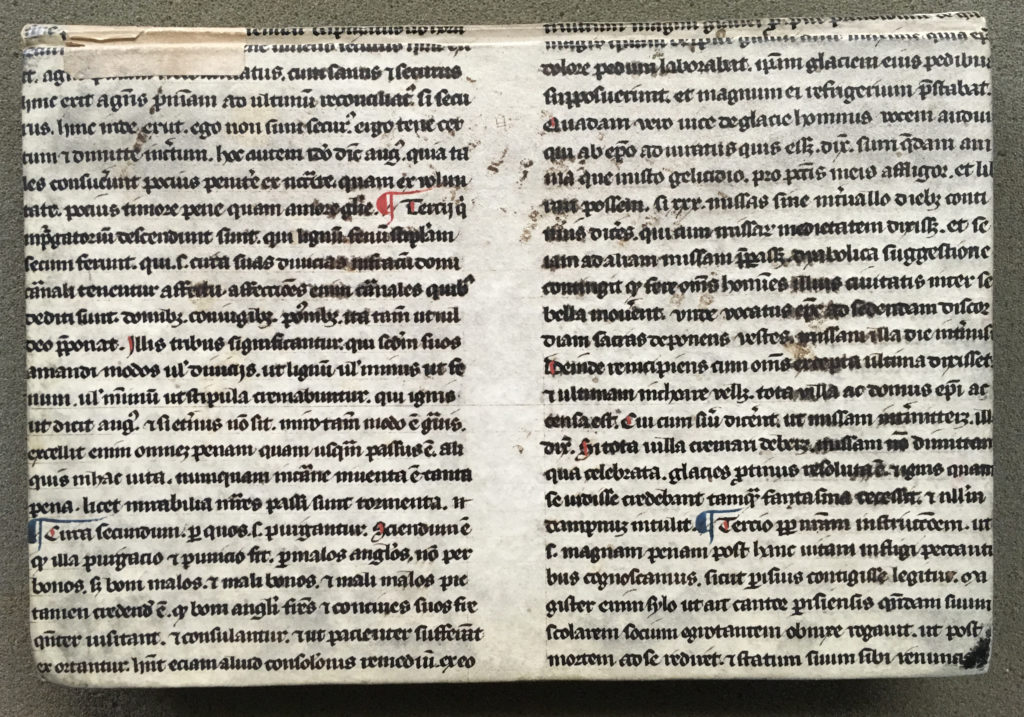This manuscript dates to circa 14th century, based on the script (a Gothic book-hand), and the composition of the actual text.
The volume was catalogued in our system with the note “Bound in a leaf from a medieval Latin ms. (paragraph marks supplied in alternating red and blue, and capital strokes supplied in red) of a religious text on purgatory; over paper boards.” Even without the acknowledging the script, a text referring to purgatory gives us a place to start, as the word purgatorium is believed to have first appeared in the 12th century.
Purgatory was an integral part to medieval Christianity, and there are no shortage of writings on it, including poetry (The Gast of Gy, Sir Owain, and The Vision of Tundale) and the story of St. Patrick. The text on this manuscript, however, comes from a work known as the Aurea Legenda (the Golden Legend), which was (mostly) composed in the late 13th century by Jacopo da Varazze, Dominican Friar and Bishop of Genoa. Aurea Legenda is comprised of 243 chapters and is essentially a book of hagiographies (saints’ lives), but also includes chapters on liturgical feast days and stories about the True Cross. The section on this leaf is from chapter 163, De commemoratione animarum (Commemoration of [all] souls).
Here’s an English translation, edited in 1900 from an earlier version by William Caxton:
The third [type] that go into purgatory be they that bear wood, hay, and stubble. These be they that, notwithstanding they love God, yet they have carnal affection to their riches, their wives, and possessions, yet they love nothing tofore God. And these be tormented in purgatory after the manner of their long or short being therein, as the wood in long burning, as the hay less, or the stubble least and shortest. And S. Augustine saith: Though this fire be not perdurable yet it is grievous marvellously, so that it surmounteth all the pain that any man suffered ever in this world. For so grievous pain was never found in the flesh, howbeit that martyrs have suffered great pains.
A good reminder from the past for this Thanksgiving week to not care only for material possessions, no matter what your religious beliefs are – or aren’t.
The book: Scot, Michael. Mensa philosophica. [Cologne: Johann Guldenschaaf, ca. 1485]. Qd 63.
Sources:
de Voraigne, Jacobus. Aurea Legenda, trans. by William Caxton and F.S. Ellis. Internet Medieval Sourcebook. Fordham University for Medieval Studies. 2011.
Foster, Edward E., ed. “Three Purgatory Poems: General Introduction.” TEAMS Middle English Texts. Robbins Library, University of Rochester. 2004.
Tillerson, Dianne. Medieval Writing: History, heritage, and data source. 20 February 2016.
Wikipedia contributors. “Legenda Aurea.” Wikipedia, The Free Encyclopedia. Accessed 29 September 2017.
Zaleski, Carol. “Purgatory.” Encyclopedia Britannica. Encyclopedia Britannica, Inc. 16 June 2017.

